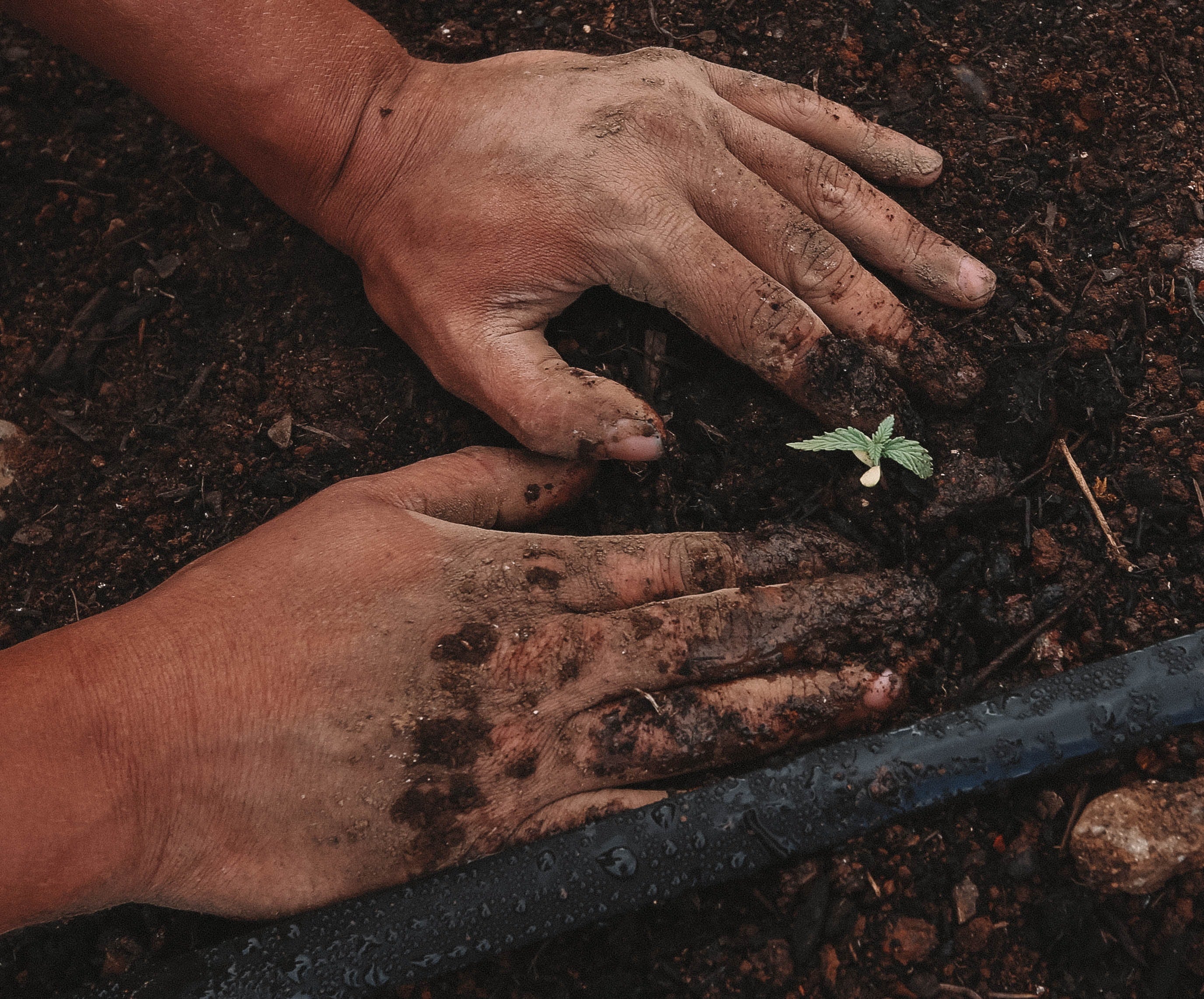If you're interested in starting a survival garden, one of the most important decisions you'll need to make is what type of gardening methods to use. While conventional gardening methods involve the use of synthetic fertilizers and pesticides, many gardeners are turning to organic gardening methods for their many benefits.
Here, we'll explore the advantages of using organic gardening methods in a survival garden, including how they can help improve soil health, reduce pesticide use, and produce healthier, more flavorful crops. We'll also provide tips on how to get started with organic gardening and some of the best practices to follow.
Improving Soil Health
One of the most significant benefits of using organic gardening methods is the improvement of soil health. Synthetic fertilizers can strip the soil of its natural nutrients, leaving it barren and unproductive over time. Organic gardening methods, on the other hand, rely on natural sources of nutrients such as compost, animal manure, and cover crops to improve soil health.
Healthy soil is essential for a successful survival garden as it provides the foundation for strong plant growth and increased resistance to pests and diseases. Additionally, healthy soil can hold more water, reducing the need for irrigation, and promoting better plant growth.
Reducing Pesticide Use
Another significant advantage of using organic gardening methods is the reduction of pesticide use. Synthetic pesticides can be harmful to both the environment and human health, and overuse can lead to the development of pesticide-resistant pests and diseases. Organic gardening methods, on the other hand, rely on natural pest control methods such as crop rotation, companion planting, and biological controls to manage pests and diseases.
Reducing pesticide use is especially important in a survival garden, where reliance on synthetic pesticides may not be possible in the long term. By using natural pest control methods, you can ensure that your garden remains productive and healthy while reducing your impact on the environment.

Producing Healthier, More Flavorful Crops
Perhaps one of the most significant benefits of using organic gardening methods is the production of healthier, more flavorful crops. Organic crops are often richer in vitamins, minerals, and other nutrients than conventionally grown crops. Additionally, because organic gardening methods rely on natural sources of nutrients, the crops produced are often more flavorful and have a better texture.
Organic gardening methods also help to promote the health of the entire ecosystem, including beneficial insects and microorganisms that contribute to the overall health of the soil and plants. This can result in a more diverse and robust garden that produces a wide variety of crops.
Getting Started with Organic Gardening
If you're interested in using organic gardening methods in your survival garden, there are a few things to keep in mind.
Start with Healthy Soil
Healthy soil is the foundation of a successful organic garden. Start by testing your soil and adding organic amendments such as compost or manure to improve soil health. Consider planting cover crops or using mulch to help protect the soil and retain moisture.
Choose the Right Plants
When selecting plants for your survival garden, choose varieties that are adapted to your growing conditions and are resistant to pests and diseases. Consider using companion planting techniques to help promote plant health and deter pests.
Use Natural Pest Control Methods
When managing pests and diseases in your organic garden, rely on natural pest control methods such as crop rotation, companion planting, and biological controls. Avoid the use of synthetic pesticides, which can harm beneficial insects and lead to pesticide-resistant pests and diseases.
Practice Good Garden Hygiene
Finally, practice good garden hygiene to prevent the spread of pests and diseases. Remove any diseased or infected plants promptly and dispose of them properly. Also, avoid working in your garden when it is wet, as this can spread soil-borne diseases.
Organic gardening is better for the environment
Aside from being beneficial to human health, organic gardening also has positive effects on the environment. Chemical fertilizers and pesticides can leach into the soil and groundwater, potentially contaminating water sources and harming wildlife. Organic gardening avoids the use of these harmful chemicals, instead relying on natural methods to control pests and fertilize plants.
Furthermore, organic gardening practices promote biodiversity and help support pollinator populations. Many conventional farming methods involve the use of monoculture, or the planting of a single crop over a large area. This can have negative impacts on the ecosystem, as it reduces the diversity of plants and wildlife in the area. In contrast, organic gardening methods prioritize crop rotation, companion planting, and the use of cover crops to maintain healthy soil and support a diverse range of plants and animals.

Organic gardening is cost-effective in the long run
While it's true that organic gardening methods may require more time and effort than conventional methods, they can actually save gardeners money in the long run. Chemical fertilizers and pesticides can be expensive, and the constant need to purchase these products can add up over time. Organic gardening, on the other hand, relies on natural methods such as composting and companion planting to support plant growth and prevent pest infestations.
Additionally, because organic gardening methods prioritize soil health, they can help create a self-sustaining ecosystem in the garden. Over time, the soil becomes richer and more fertile, reducing the need for expensive fertilizers and amendments. By building a healthy, sustainable garden ecosystem, organic gardeners can save money and reduce their reliance on external inputs.
Next Steps
If the time and labor involved in survival gardening is holding you back from growing your own food source, consider adopting the no-dig method. You could quickly improve your own health and that of your garden simultaneously. Ready to take the next steps? Get everything you need to help your survival garden flourish, from survival seeds to bat houses and tools.











